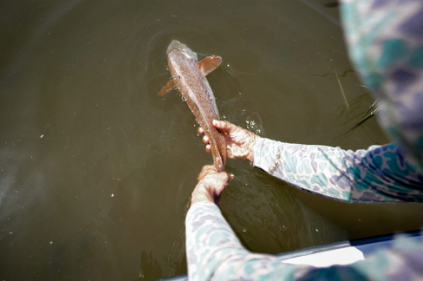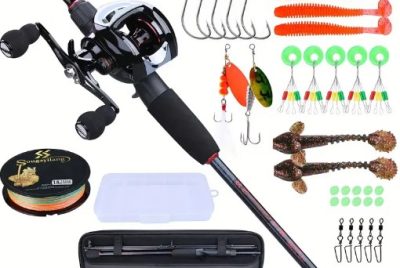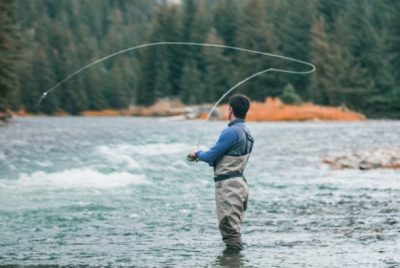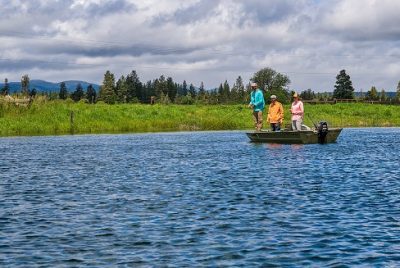Fly Fishing for Redfish
Introduction
Fly fishing for redfish is a passion that combines the excitement of angling with the tranquility of nature. As an enthusiast and advisor, I’m here to share the ins and outs of this thrilling adventure. Whether you’re new to fly fishing or a seasoned angler looking to target redfish, this guide will provide you with helpful suggestions and reasons behind them.
Understanding Redfis
Habitat and Behaviour
Redfish, also known as red drum or channel bass, are prized catches in the coastal waters of the United States. They inhabit estuaries, marshes, and flats, preferring shallow waters with plenty of food sources. Understanding their behaviour and preferred habitats is key to a successful fly fishing experience.
The Appeal of Redfish in Fly Fishing
Redfish are renowned for their aggressive nature and challenging fights. They’re known to put up a strong resistance when hooked, making them a favourite among anglers seeking a thrilling battle. Their beautiful copper-colored scales and distinctive spot patterns only add to their allure.
Essential Gear and Tackle
Fly Rod and Reel Selection
Choosing the right equipment is crucial. Opt for a medium to heavy-weight fly rod (typically 7-9 weight) paired with a durable reel. A balanced setup ensures you can handle redfish of varying sizes effectively.
Choosing the Right Flies
Redfish are opportunistic feeders, so having a selection of flies that mimic their natural prey is essential. Crab and shrimp patterns, such as the Merkin Crab and Clouser Minnow, are often successful choices.
Leader and Tippet Considerations
A strong and abrasion-resistant leader and tippet are necessary for battling redfish. A 9-12 foot leader with a 12-16 pound test tippet is suitable for most situations.
Selecting the Ideal Location
Coastal Hotspots
Redfish can be found along the Atlantic and Gulf coasts of the United States. Hotspots like Louisiana’s marshes and Florida’s flats are renowned for their redfish populations.
Tides and Seasons
Understanding the influence of tides and seasons on redfish behaviour is crucial. Redfish tend to feed more actively during incoming and outgoing tides, so plan your trips accordingly.
Techniques for Success
Sight Casting to Redfish
One of the most exhilarating aspects of fly fishing for redfish is sight casting. Stealthily approaching a cruising redfish and presenting your fly accurately is both challenging and rewarding.
Presentation and Retrieve Techniques
Experiment with different retrieves to entice strikes. Redfish can be selective, so varying your presentation can make a difference.
Patience and Persistence
The Importance of Waiting for the Right Moment
Success in fly fishing for redfish often requires patience. Wait for the perfect opportunity to present your fly to a redfish, rather than rushing and potentially spooking them.
Adapting to Changing Conditions
Weather and water conditions can change rapidly. Be prepared to adapt your strategy and fly selection to suit the conditions on the day.
Conservation and Ethics
Catch and Release Practices
Responsible catch and release is essential for preserving redfish populations. Handle them with care and release them gently to ensure their survival.
Protecting Redfish Habitats
Participate in local conservation efforts and support organizations that work to protect redfish habitats and water quality.
Safety and Preparation
Sun Protection and Hydration
Spending hours on the water means exposure to the sun. Use sunscreen, wear protective clothing, and stay hydrated to ensure a safe and enjoyable fishing trip.
Preparing for Varying Weather Conditions
Pack rain gear and clothing suitable for different weather conditions to ensure your comfort and safety.
Personal Experiences
Read about the unforgettable experiences of fellow anglers who have had memorable encounters with redfish. Their stories will inspire and motivate you.
Benefits of Fly Fishing for Redfish
Fly fishing for redfish offers numerous benefits beyond the thrill of the catch. It provides a connection with nature, stress relief, and an opportunity to create lasting memories.
Common Mistakes to Avoid
Overcasting and Spooking Redfish
Casting too close or too far can spook redfish. Practice your casting to achieve accuracy without alarming your target.
Failing to Adapt to Changing Conditions
Being adaptable is essential in fly fishing. Don’t be afraid to change your approach when the conditions require it.
Conclusion
Fly fishing for redfish is not just a sport; it’s a way to connect with nature, challenge yourself, and create lasting memories. By understanding redfish behaviour, investing in the right gear, and practicing ethical angling, you can embark on a thrilling adventure that will stay with you for a lifetime.
FAQs
- What is the best time of year for fly fishing for redfish?
- Redfish are active year-round, but the fall and spring months are often considered prime seasons due to milder temperatures and active feeding.
- Do I need a specialized fly line for redfish?
- While not mandatory, a weight-forward floating fly line designed for saltwater fishing can be beneficial for casting in coastal environments.
- How do I handle redfish safely for catch and release?
- Use wet hands or a rubberized landing net to handle redfish gently, minimizing stress to the fish. Release them carefully to ensure their survival.
- Are there any regulations regarding redfish fishing?
- Fishing regulations can vary by location. Check with local authorities or the state’s fish and wildlife agency for up-to-date information on size and bag limits.
- Can I fly fish for redfish as a beginner?
- Absolutely! Redfish can be challenging, but they offer a rewarding learning experience. Start with the basics and build your skills over time.
Now, go out there, explore coastal waters, and experience the excitement of fly fishing for redfish firsthand!




